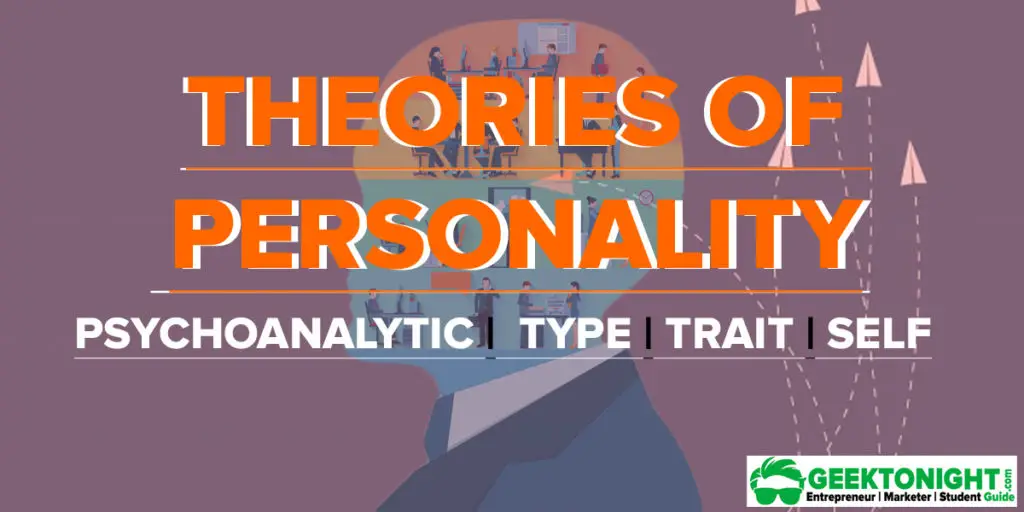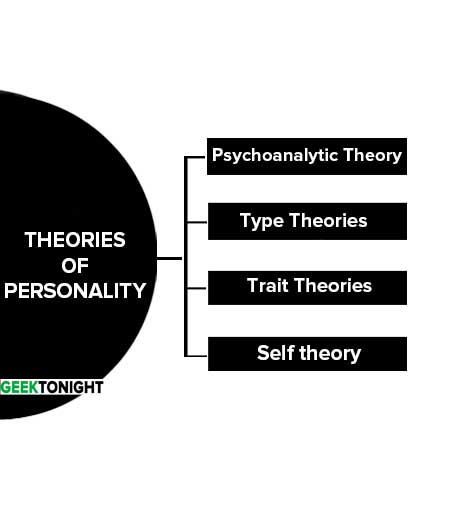A method of studying personality through in-depth analysis of one individual and the dimensions relevant to that persons personality. Pg64 Each man based his theory on a different part of a persons personality development.

12 Jungian Archetypes In Personality Individualogist Com Jungian Archetypes Archetypes Personality Archetypes
The four psychologists that thought up the four theories are Sigmund Freud Jean Piaget Erik Erikson and Abraham Maslow.

. Such radical behavioral approaches emphasized the study of observable behavior and thus any theory of personality. He further developed the model of personality originally proposed by Eysenck proposing a biopsychological theory Gray 1970. The 5 to 10 traits that best describe a persons personality.
Therefore his theory posits that we must consider both the individual and his environment before having a full understanding of his behavior. Self disorders characterized by individuals attempts to fix their fragile self-esteem by engaging in addictive perverse or delinquent behavior Kohut narcissistic personality disorders self disorders characterized by grandiose thinking hypersensitivity to slights and perceived failures inability to forgive lack of zest impaired personal relationships and fragile self-esteem Kohut. Skinner are typically considered inconsistent with the concept of personality which itself represents an unobservable construct.
This means that over time people learn to behave in particular. Traditional models of behaviorism represented by figures like John B. Which statement best describes Allports attitude toward biological influences on personality.
Gray believed that behavior is influenced by two systems. Behavior can influence personality as well as the opposite. Personality traits such as introversion friendliness conscientiousness honesty and helpfulness are important because they help explain consistencies in behavior.
Psychologists can pinpoint and connect habits and behavior to predict how a persons personality was shaped. Sigmund Freud the father of psychoanalysis described personality in part as comprising three components. British psychologist Jeffrey Alan Grey 1934-2004 studied under Hans Eysenck at the Institute of Psychiatry in London.
Learn vocabulary terms and more with flashcards games and other study tools. Id ego and superego. People with high self-efficacy try.
While the theory builds on Freuds stages of psychosexual development Erikson chose to focus on how social relationships impact personality development. Theories that explain behavior and personality in terms of unconscious energy dynamics within the individual. Trait theory suggests that individual personalities are composed of broad dispositions.
Unlike many other theories of personality such as psychoanalytic or humanistic theories the trait approach to personality is focused on differences. Freud believes that the human is composed of three elements. Personalities are characterized in terms of traits which are relatively enduring characteristics that influence our behavior across many situations.
Skinner is well known for describing the principles of operant conditioning. According to Freud the basic driving force of personality and behavior is known as the libido. According to his view people have consistent behavior patterns because they have particular kinds of response tendencies.
Freud not only theorized about how personality developed over the course of childhood but he also developed a framework for how overall personality is structured. Hans Eysencks 1916-1997 personality theory was based on three universal traits. Freuds Structural Model of Personality.
Maslows theory suggested that human needs could be put onto different levels as. Therapy that focuses on unconscious processes and how they influence personality. Erik Eriksons eight-stage theory of human development is one of the best known theories in psychology.
The main viewpoint in the social learning theory of Rotter is that personality is a representation of the contact between the person and his environment. The trait approach to personality is one of the major theoretical areas in the study of personality. The first described a.
As described in Chapter 7 Learning and Conditioning B. The theory that best describes my personality is Maslows. The theory also extends beyond childhood to look at.
The behavior perspective or behaviorism is the belief that personality is the result of an individuals interactions with their environment including the decisions they make and the actions they take. First for introversionextroversion introverts are reserved and quiet individuals who focus on inner experiences while extraverts are sociable and. In line with this Rotter believed that.
This perspective which started from Sigmund Freuds work views that human behavior emphasizes the role of early childhood experiences the unconscious mind and interpersonal relationships to treat mental illnesses and explain human behavior. Theories of Personality Chapter 7. Extroversion neuroticism and psychoticism.
Today the Big Five theory is perhaps the most popular and widely accepted trait theory of personality. The maintenance of individual differences in behavior or perso. The instinct-driven id the morality-bound super-ego and the relatively.
The term often used for the personality of. Start studying Personality Theory Chapters 7-8 and 10-13. A statistical procedure used to determine the number of dimensions in a data set.
Skinner believed that the environment determines behavior. A psychologist named Hans Eysenck would narrow the list of traits further suggesting there were only three.

Theories Of Personality 4 Types Of Theory

How Maslow S Famous Hierarchy Of Needs Explains Human Motivation Freud Theory Psychology Social Work Exam


0 Comments